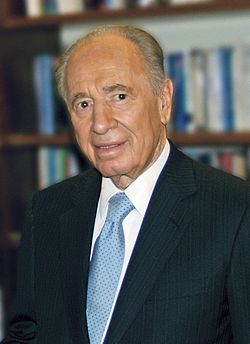First Peres Cabinet | |
|---|---|
| 21st Cabinet of Israel | |
 | |
| Date formed | 13 September 1984 |
| Date dissolved | 20 October 1986 |
| People and organisations | |
| Head of state | Chaim Herzog |
| Head of government | Shimon Peres |
| Member parties | Alignment Likud Shinui Shas National Religious Party Ometz Yahad Agudat Yisrael Morasha |
| Status in legislature | |
| Opposition leader | Yuval Ne'eman |
| History | |
| Election | 1984 |
| Legislature term | 11th Knesset |
| Predecessor | 20th Cabinet of Israel |
| Successor | 22nd Cabinet of Israel |
The twenty-first government of Israel was formed by Shimon Peres of the Alignment on 13 September 1984, following the July elections. With both the Alignment and Likud winning over 40 seats each, neither side could form a stand-alone coalition, resulting in a national unity government, together with the National Religious Party, Agudat Yisrael, Shas, Morasha, Shinui and Ometz, which together held 97 of the 120 seats in the Knesset. However, in protest at the alliance with Likud, Mapam broke away from the Alignment, as did Yossi Sarid, who joined Ratz. [1]
Contents
The government was replaced by the twenty-second government on 20 October 1986, when Yitzhak Shamir replaced Peres as prime minister in accordance with the rotation agreement between the Alignment and Likud. The rotation agreement also led to the creation of the post of acting prime minister, who would take over the powers of prime minister if they were incapable of fulfilling their duties, as opposed to the deputy prime minister, which was a symbolic role. The Minister of Police was also restored to the cabinet.